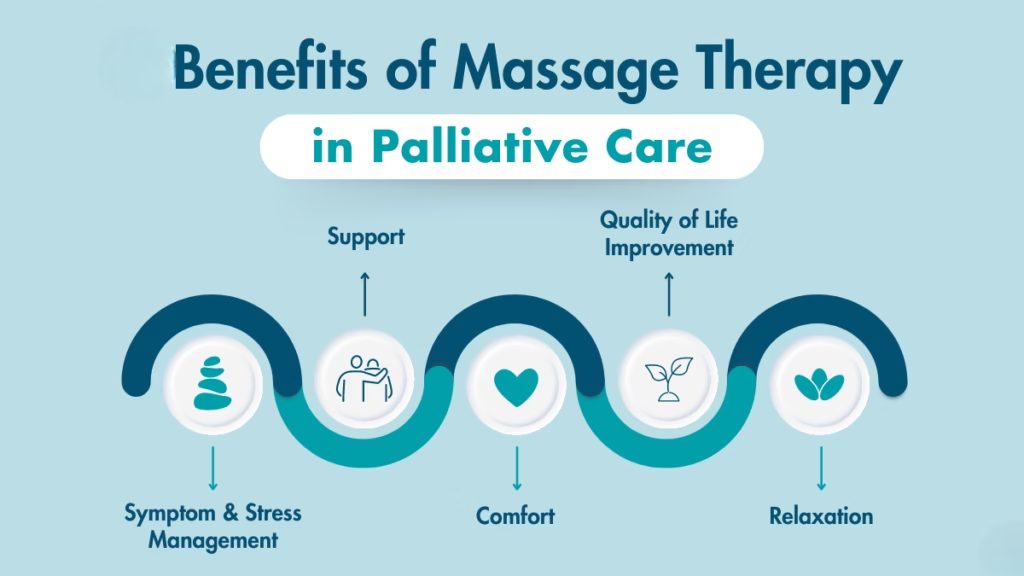Psychology of Stress: How It Affects Our Daily Lives – Best Psychologist in India
Stress is a normal part of life. It happens when we feel pressure or deal with challenges. Stress can be good or bad. Good stress motivates us to meet deadlines or overcome obstacles. Bad stress makes us feel anxious or overwhelmed. Stress can impact our physical and mental health. It can cause headaches, fatigue, or difficulty sleeping. It may also lead to depression or irritability. To manage stress, it’s important to identify its causes.
we can try relaxation techniques like deep breathing or meditation. Reaching out to friends and family for support can also help. Seeking professional help from a psychologist is a good idea if stress starts to interfere with daily life. They can provide coping strategies and teach us how to better handle stressful situations. With the right tools, we can learn to manage stress and maintain our well-being.
Stress is a normal part of life. Dealing with work and personal relationships can make us feel stressed. We need to understand stress psychology. This helps us see how stress affects us. It also shows us how to manage stress. If you need help, talking to a top psychologist in India can guide you. They can help you with the troubles stress can cause.
Stress is how your body reacts to something challenging or threatening. It’s a natural way your body tries to protect you. When you face stress, your body activates its “fight or flight” response. This releases hormones like adrenaline and cortisol from your adrenal glands. This reaction is helpful for short periods. But repeated stress can lead to physical and mental problems.
Stress can affect people’s lives. It comes from many things. Understanding stress helps people manage it. Stress is a normal part of life. It can be good or bad. Too much stress can lead to health problems. Learning to cope with stress is important. Simple steps can reduce stress. Relaxation and exercise are helpful. Taking breaks and getting support also work. Dealing with stress in a healthy way makes life better.
Stress happens when demands on a person are more than they can handle. This greatly affects how we react to things and people.
Here is the content with improved readability: -
Stress affects our daily lives. It can cause problems. Understanding how stress impacts us is important. Stress can make us feel tired or upset. It can also make it hard to focus. Stress can even make us sick. Learning to manage stress is key. Finding healthy ways to deal with stress is crucial. With the right approach, we can reduce the effects of stress. This allows us to enjoy our everyday lives better.Stress affects many parts of our daily lives. It impacts our physical and emotional health, relationships, and our overall well-being.
Let's take a closer look at how stress affects us:-
1. Physical Health
Our physical health involves many things. It includes how our body functions. This covers things like our weight, muscle strength, and flexibility. Physical health also involves our ability to do physical activities without problems. It’s important to take care of our physical health. Doing so helps us feel good and prevents health issues.
Prolonged stress can cause physical health problems. For example it may lead to: –
Cardiovascular diseases can be caused by severe long-term stress. This stress keeps the body in a constant state of tension. This eventually affects the health of blood vessels and the heart. To better handle persistent stress, getting help from an expert is important. The best psychologist in India can provide personalized strategies. These strategies can help you manage stress. This can improve your mental and physical health. It can also reduce the risks of long-term stress. Stress can weaken your immune system.
This makes your body less able to fight off infections and diseases. Chronic stress disrupts the balance of your immune functions. This reduces your body’s resistance to viruses, bacteria, and other germs. Over time, this leads to more frequent illness and longer recovery times. You can help your immune system by reducing stress. Healthy habits like exercise, meditation, and good rest can restore the balance and well-being of your immune system.
Digestive Problems:-
Stress is hard on the digestive system. It worsens issues like irritable bowel syndrome (IBS) and acid reflux. Under stress, the body makes chemicals that interfere with normal digestion. This raises stomach acid and makes the digestive tract more sensitive. This can cause stomach pain, bloating, heartburn, and discomfort. To address stress, try relaxation techniques, eat well, and be more aware of your body. This can ease these symptoms and support digestive health.
Sleep Disorders:-
Stress can cause sleeping problems.This leads to a sleep disorder. You may have trouble falling asleep, staying asleep, or waking up too early. When your mind is busy with tension or worries, it’s hard to relax. Your body can’t get the restful sleep it needs. Poor sleep doesn’t just cause fatigue. It can also increase anxiety and make you easily irritated or angry. This creates a vicious cycle. Doing stress-reducing activities like mindfulness, exercise, and a relaxing bedtime routine can help you overcome sleeping problems. This can improve your overall well-being.
2. Mental Health
Maintaining good mental health is important. It means feeling positive about yourself and able to cope with the normal stresses of life. This includes having healthy thoughts and emotions. Good mental health helps you enjoy life and build strong relationships. It enables you to be productive and achieve your goals. There are many ways to improve your mental health. Getting enough sleep, exercising regularly, and practicing relaxation techniques can all help. Eating a balanced diet and avoiding harmful substances are also important. If you’re struggling with your mental health, don’t hesitate to seek professional help. Speaking to a counselor or therapist can provide valuable support and guidance.
Stress can cause major problems for mental health. It can lead to:-
Anxiety and depression are serious issues. Chronic stress is a major cause of both. Stress can lead to feelings of worry or sadness. These feelings can last a long time and disrupt your daily life. It’s important to address chronic stress to prevent problems like anxiety and depression.
Cognitive Impairments:-
Extreme stress hurts your memory, focus, and ability to make decisions.Emotional Dysregulation: Stress can make you feel irritable, with mood changes. You may also feel helpless.
3. Relationships :-
People have connections with others. These connections are important. Relationships can be with family, friends, or partners. Healthy relationships make people feel good. They give support and comfort. Unhealthy relationships can cause problems. It’s important to work on having good relationships. This takes effort from everyone involved.
Stress can strain relationships with family, friends, and coworkers. People under stress are likely to:-
Withdraw from social gatherings. Become more frustrated and focused.Inability to communicate can cause misunderstandings. Not explaining things clearly can lead to confusion. People may not understand each other well. This can create problems. It’s important to communicate in a clear way.
4. Work Performance and Productivity
Good work performance is important. It helps you be more productive. This means you can finish tasks faster and better. Understanding your work performance is key. It shows you areas to improve. You can then set goals to boost your productivity. This helps you excel in your job. Always strive to improve work performance. It leads to greater success.
Work stress can reduce how well you work and make you miss more work. It can also cause burnout. Burnout is a state of being very tired physically and emotionally. This is caused by ongoing stress at work.
Understanding the Triggers of Stress:-
Stress is a normal part of life. It can come from many things, like work, family, or school. Some stress is good because it can help you stay focused and motivated. But too much stress can be bad for your health.
There are many things that can trigger stress. Some common triggers are:-
(i) Tight deadlines at work or school (ii) Arguments with friends or family (iii) Big changes, like moving or a new job (iv) Financial problems (v) Health issues
It’s important to know what your stress triggers are.
That way, you can try to avoid them or find ways to manage them better. When you feel stressed, take a break and do something you enjoy. This can help you relax and feel better. Stress triggers differ for each person.
Common sources of stress include:-
Work-Related Stress:- Deadlines, overtime, and issues with coworkers can create stress at work. Meeting tight deadlines and working extra hours are common causes. Conflicts with colleagues also contribute to workplace stress. These factors can make work life challenging. Identifying and managing these stressors is important for your well-being. Taking steps to address work-related stress can help you stay healthy and productive.
Financial Stress can come from debt, surprise expenses, or job problems. These things can make you feel worried about money. It’s important to learn how to handle financial stress in a healthy way. Dealing with financial stress early can prevent bigger problems later.
Relationship stress can come from troubles in a marriage.-
Family arguments or losing someone close can also cause relationship stress.Health Issues Chronic illness, injury, or caring for a sick family member.Life Transitions. Moving to a new home, changing jobs, or becoming a parent. Identifying your stress triggers is the first step. This lets you manage your stress better. If you have trouble finding the causes of your stress, talking to a good psychologist in India can help you understand it.
The Science of Stress and the Brain: best psychologist in India .
Stress affects the brain. It can make it hard to focus or remember things. Too much stress is not good for the brain. Seeing a psychologist can help manage stress. A good psychologist in India can give you tools to cope with stress. They can teach you ways to relax your mind and body. This helps the brain work better. Reducing stress is important for brain health.
Stress has a big impact on the brain. When you feel stressed, the part of the brain that handles emotions gets anxious. This can negatively impact the front part of the brain. This part is key for planning, deciding, and controlling ourselves. It’s linked to rational thinking and decision-making. Long-term stress can also change brain structure. This affects memory, learning, and emotional control.
Stress can reduce the part of your brain that is responsible for your memory and learning. This area is also linked to controlling emotions and memory. These changes can make it harder to manage stress. They can also make a person more likely to develop mental health issues.
Stress can be handled by using good coping methods. Here are some tips to use:-
1. Mindfulness helps you focus on the present :-
Meditation is a way to practice mindfulness. It lets you calm your mind and body. Mindfulness helps you focus on the present. It stops overthinking and worrying. Deep breathing, meditation, and yoga are good ways to calm your mind. Deep breathing lowers your heart rate and reduces stress. Meditation gives you inner peace. Yoga combines movement and awareness to release physical tension. For those who want personalized help, meeting the top psychologist in India can be life-changing.
These experts use mindfulness techniques in therapy. They give customized ways to manage anxiety and stress well. With their guidance, you can start a daily mindfulness routine. You can also better control your mind and improve your mental health. Begin the journey to a calm and focused mind with mindfulness and professional support.
2. Regular Exercise :-
Exercising regularly is very important. It keeps your body healthy. Exercise boosts your energy levels. It also helps you manage your weight. Regular exercise improves your mood and mental health. It can lower your risk of many diseases. Try to exercise for at least 30 minutes per day. Choose activities you enjoy, like walking, swimming, or biking. Staying active is key to living a healthy life.
Physical activity is a great way to relax from stress. When we exercise, our body makes chemicals that act as pain relievers and mood boosters. Daily exercise reduces tension and boosts mood and energy. Activities like walking, jogging, swimming, or dancing can improve your mental well-being. Try to do at least 30 minutes of moderate exercise at least five days a week. This will give you these benefits and help build a healthier mind and body.
3. Good Lifestyle Habits :-
Having healthy habits is important. It helps you feel good. Here are some good habits to try:-
Exercise regularly. Even a short walk each day can improve your health. Eat nutritious foods. Choose fruits, veggies, and whole grains. Avoid too much sugar and fat. Get enough sleep. Aim for 7-9 hours per night. Manage stress. Try relaxing activities like deep breathing or meditation. Drink plenty of water. Stay hydrated throughout the day. .Developing these healthy lifestyle habits can benefit your overall well-being. Small changes can make a big difference. Start with one or two habits and build from there.
Nutrition is important for your health. Eating a balanced diet can help you feel your best. A balanced diet has a mix of foods. This includes fruits, vegetables, grains, protein, and dairy. Eat a variety of healthy foods each day. This will give your body the nutrients it needs. Avoid foods high in sugar, salt, and unhealthy fats. These can harm your health if you have them too much. Focus on nourishing your body with wholesome, natural foods. This will support your overall wellbeing.
Sleep is very important. You should have 7 to 9 hours of good sleep each night. This will help you feel rested and energized. Limit using caffeine and alcohol. These can increase your stress levels.
4. Social Support:-
Having people you can rely on is important. It helps you feel connected and supported. With social support, you can better handle life’s challenges. You can share your thoughts and feelings with others. This can reduce stress and improve your mental health. Friends, family, and communities can provide this needed social support. Reach out and connect with the people around you. Their support can make a big difference in your life.
Discussion with friends, family, or support groups is very important. It helps you cope with stress. Talking to others makes you feel part of a group. It reminds you that you are not alone. Discussing your feelings with someone you trust lets you share bottled-up emotions. This can give you a new perspective. It also helps you feel understood. Open discussion can be very useful. It can help you relax and feel better. It can strengthen your resilience. It can also help you cope with stressful situations better.
5. Getting Professional Help:-
Seeking professional assistance can be beneficial. Experts have knowledge and skills to help. They can provide insights and guidance. This support can improve your work. It’s worth considering getting professional help.
If stress feels hard to handle, see a mental health expert. The top psychologists in India can provide personal therapy. They can teach you ways to cope with your specific needs.
The Role of Therapy in Stress Management:-
Therapy can help you manage stress. It allows you to learn ways to cope with stress. Therapy gives you tools to handle difficult emotions. This helps reduce stress in your life. A therapist can teach you strategies to manage stress. They can also help you identify sources of stress. Therapy provides a safe space to discuss your problems. This can provide relief from stress. Many people find therapy useful for managing stress. It’s an effective way to take care of your mental health.
Therapy can help you handle stress. Different therapy methods include:-
Cognitive Behavioral Therapy (CBT) can help if you’re dealing with stress and negative thoughts. Meeting a skilled psychologist in India can make a big difference. They can teach you how to find the root of your stress. They can also show you strategies to overcome and change negative thought patterns. In personalized therapy, you can learn skills like CBT. This can help you manage stress and improve your overall well-being.
How the Best Psychologist in India Can Help
A good psychologist in India can help you in many ways. They can help you understand your thoughts and feelings better. This can help you deal with problems in your life. A psychologist can also help you set goals and make positive changes. .Talking to a psychologist can be very helpful when you’re feeling stressed, anxious, or depressed. They can give you tools to manage these emotions. A psychologist can also help if you’re having trouble in your relationships or at work. .Many people see a psychologist to get an outside perspective on their life. They can provide insights that you may not see on your own.
A psychologist can help you find new ways to approach challenges. .If you’re considering seeing a psychologist in India, look for one with experience and good reviews. Make sure you feel comfortable talking to them. The right psychologist can make a big difference in your life. dapibus leo.
Selecting the right mental health expert is important to manage stress. The best psychologist in India :-
Checking your stress levels carefully can help you understand the causes. Look at your stress levels in a detailed way. This will show you what is causing your stress.
Evidence-based care focuses on treatments that work. The therapist will create a plan just for you. This plan aims to change the course of your condition or process.
Practical ways to feel better and relax. These techniques can help you manage stress. They provide a calm and peaceful state of mind. You can use them when you feel overwhelmed. They give you tools to handle difficult situations. These methods are straightforward and easy to use. They empower you to take control of your well-being.
Regular encouragement and guidance can help you manage life better. This gives you support to deal with challenges. Getting this kind of help makes coping with life easier.
Preventing Stress: Here are some tips to improve your long-term well-being. Stress can be harmful, so it’s important to manage it. A top psychologist in India advises us on ways to deal with stress. These tips can help you stay healthy and happy in the long run.
Conclusion.
Stress is a normal part of life. But you don’t have to let it control you. Understanding stress and using ways to cope with it can help you live a healthier, more balanced life. If you can’t manage stress on your own, getting advice from a top psychologist in India can really help. Your emotional health is just as important as your physical health.
Best Psychologist in India


We Are Provide Services

Individual Counseling

Marriage Counseling

Child Counseling

Relationship Counseling

Group Counseling


